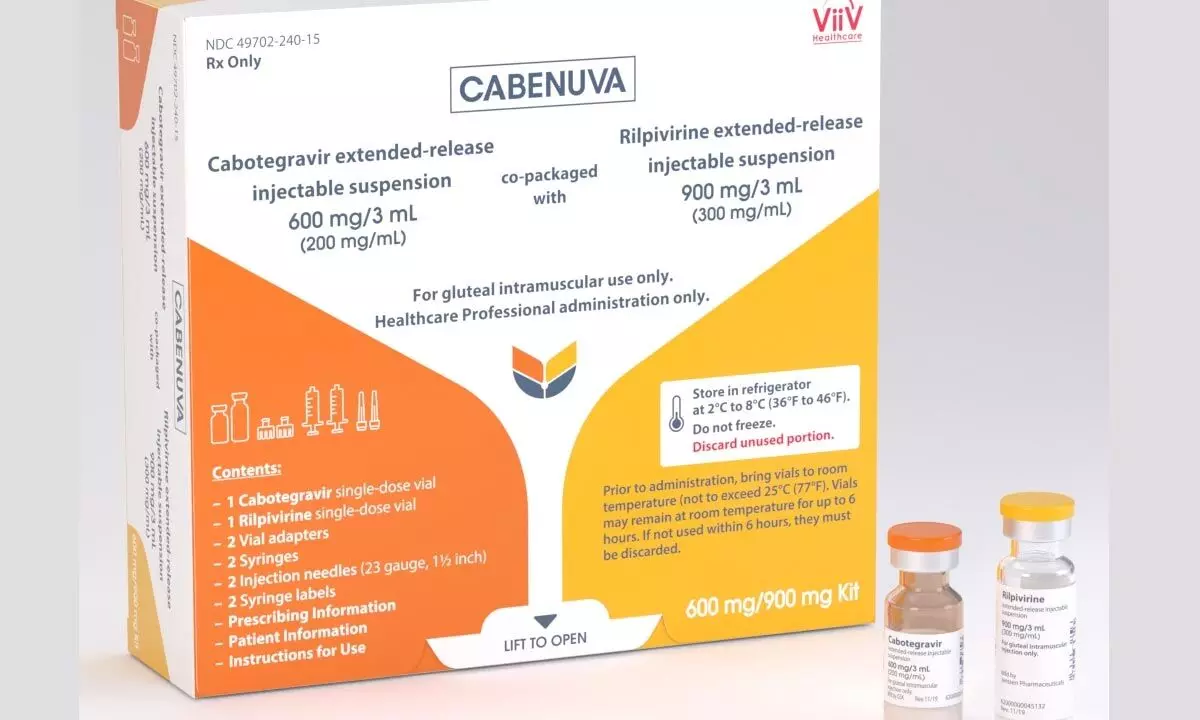Toughen regulations to ensure easy access to HIV drug cabotegravir
The Covid pandemic has widened inequalities, claimed millions of lives and has adversely impacted HIV, TB, and other health services across the world. And India was no exception.
image for illustrative purpose

The Covid pandemic has widened inequalities, claimed millions of lives and has adversely impacted HIV, TB, and other health services across the world. And India was no exception. It has affected people who are living with HIV or are at risk of getting affected by it.
By adopting the UN Sustainable Development Goals (SDGs), governments of over 190 nations, including India, have pledged to end the dreaded disease by 2030. India will strive to eliminate the disease by going about the National Health Policy, 2017 with gusto. Towards achieving the goal, the Parliament had way back in 2017 passed the HIV and AIDS (Prevention and Control) Bill, which was primarily aimed at ensuring equal rights while seeking treatment, education and jobs for people living with HIV. The bill stipulated penal provisions for any discrimination practiced against a person with HIV/AIDS and breach of confidentiality.
It sought to prevent and control the spread of HIV and AIDS, and to prohibit discrimination against the affected lot.
However, while the medical fraternity in particular was grappling with Covid-19 pandemic for almost two years, treatment of equally critical health issues like HIV, tuberculosis and other infectious diseases took a backseat in India, nay the whole world. Consequently, the WHO target 90-90-90 by 2020 remained unaccomplished. This target was that 90 per cent of people with HIV should be aware of their status, 90 per cent of HIV infected people, who know their status, should be put on antiretroviral treatment (ART) and 90per cent of those on ART should have their HIV-viral loads suppressed.
In statistical terms, in 2020, when the world was in the grip of Covid-19 pandemic, 1.5 million people were newly infected with HIV and 680,000 succumbed to AIDS-related illnesses globally.
Since most nations could not meet 2020 AIDS targets, now they are eyeing a 2030 goalpost of 95-95-95 targets(95 per cent of people living with HIV to know their status, 95per cent of them should be on ART and 95 per cent of these bevirally suppressed).
Under this background, the NGOs' clarion call to dismantle barriers to access long-acting HIV drug cabotegravir holds much water. Médecins Sans Frontières (MSF), an NGO working in the health sector, recently urged UK-based pharma giant ViiV Healthcare to urgently dismantle the barriers hindering broad access to the most effective form of HIV pre-exposure prophylaxis (PrEP) that exists, cabotegravir (CAB-LA), which could turn the tide against new HIV infections. CAB-LA is administered as injection every two months and has proven to be more effective than the once every day oral PrEP pills. In hindsight, ViiV is neither making the life-saving drug affordable nor is it catering to places where it is urgently needed. Around 1.5 million people were newly infected with HIV in 2021, which is far from the global target of reducing new annual infections to 370,000 by 2025. Affordable access to CAB-LA could play a major role in reducing infections and saving more lives.
According to UNAIDS, an estimated 2.4 million people were living with HIV in India in 2021 (including 70,000 children). Of them, 1.9million or 77 per cent knew their HIV status; 1.6 million (or 65per cent of 2.4 million) were on lifesaving antiretroviral therapy and 1.3 million (or 55 per cent of 2.4 million) had suppressed viral load. More alarmingly, 63,000 people were newly infected
with HIV in 2021 in India , which translates to seven new infections every hour. The death toll of 42,000 implies that five people succumbed to AIDS-related deaths every hour.
There can be no two opinions. Rollout of long-acting injectable cabotegravir would be hugely beneficial for reducing new HIV infections for people at risk and break the cycle of transmission, particularly in places where the prevalence is high. In December 2021, CAB-LA's registration was approved for the prevention of HIV infection by USFDA, and was then approved in August 2022 in Australia, followed by Zimbabwe and Uganda. While there are some pending submissions for CAB-LA registration, which governments must prioritise for approval, ViiV should do more to register it globally as it is still not available in most countries. This is particularly a matter of serious concern as ViiV will be the only
supplier of CAB-LA until generic versions are developed, registered and commercially available. This may take at least four to five years following a voluntary license agreement between ViiV and Medicines Patent Pool (MPP) in July 2022. This agreement happened after the civil society raised grave concerns about ViiV's lackadaisical approach to making CAB-LA available.
Of course, without taking any bold initiatives against inequalities, India, like most countries, is likely to miss the target of ending the dreaded AIDS menace by 2030.
(The author is freelance journalist with varied experience in different fields)

